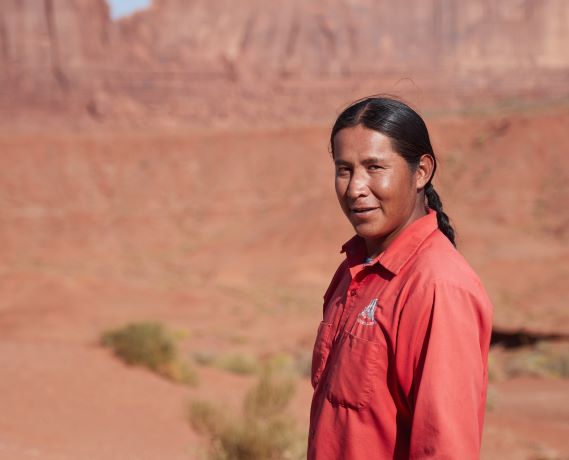
Diné College, one of the oldest tribal colleges and universities, celebrated its Spring 2025 Commencement Ceremony on May 9, marking another significant milestone in the institution’s history.
According to the press release, this year’s graduates earned various degrees and certifications, including two master’s degrees, 48 bachelor’s degrees, and 95 associate degrees.
Notably, four students—including a dual-credit student graduating with a certificate in public health and a concurrent high school diploma—achieved perfect 4.0 GPAs.
Another recent achievement for the college was the 2025 Voices of the Diné: Bridging Science, Culture, and Community in Genetic Research.
The summit, held at Northern Arizona University, brought together experts, students, and community members to discuss the intersection of genetics, Indigenous health, and cultural preservation.
The two-day summit emphasized the importance of education, ethical research practices, and opportunities to merge science with tradition for the benefit of Native communities.
A significant topic of discussion was the Navajo Nation’s moratorium on genetic research, initially enacted in 2002 to prevent the misuse of tribal members’ genetic material—a practice many view as taboo without informed consent.
Recent advancements in genomics have prompted Navajo leaders, scientists, and policymakers to consider developing a comprehensive genetic research policy that balances potential health benefits with the community’s cultural and ethical standards.
New graduate-level courses in genetics, genomic data science, and ethical data management are being integrated into the college’s curriculum.
These programs aim to enhance students’ understanding of genomics while ensuring they are knowledgeable about secure data storage and compliance with standards such as the Health Insurance Portability and Accountability Act (HIPAA) and the Common Rule.
The college also emphasizes the importance of engagement with the Navajo Nation Human Research Review Board (NNHRRB), which oversees ethical considerations in all research involving tribal members.
Blackfeet Community College has announced that applications are still open for “Trails to Research,” a fully funded, week-long summer research course at Montana State University, occurring from June 8 to 13, 2025.
The course is open to Tribal College students enrolled for the Spring 2025 semester. No prior research experience is required—only curiosity and motivation.
Travel, housing, meals, and a $400 stipend are provided as participants engage in hands-on lab work using zebrafish to explore fundamental scientific questions and build skills and confidence for future research opportunities.
Additionally, BFCC will host its Black Tie & Blue Jeans Fundraiser, featuring local artists and community members showcasing their work, with proceeds directly benefiting students at BFCC.
The evening will include exceptional local art, live music, and dinner.
BFCC also celebrated its Class of 2025 on May 16, recognizing their hard work.
Special congratulations were extended to Shannon Salois, the recipient of this year’s prestigious Chief Earl Old Person Award—an honor recognizing leadership, cultural pride, and commitment to the community.
BFCC and Montana Colleges hosted the annual College & Career Fair in April, where students competed for a chance to win one of three $500 scholarships by attending.
Fort Peck Community College held its graduation ceremony for the Class of 2025 on May 9, 2025. According to AmeriCorps Vista at Fort Peck Community College (FPCC) paper, FPCC empowers students so that they are the next generation of workers, leaders and citizens while preserving and promoting Assiniboine and Sioux Culture.
The U.S. Army Corps of Engineers has been tasked with…
Brown and Caldwell, a leading environmental engineering and construction firm,…
Humboldt State University, one of four campuses within the California…